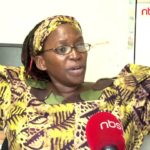Makerere University Institute of Social research boss Prof Mahmood Mamdani has spoken out Dr Stella Nyanzi’s eviction from one of their offices spaces.
Nyanzi revealed that Mamdani accuses her of not doing ‘MISR research’ but the former University of Columbia professor in an official communication revealed that she refused to teach and the administration had to give the space to someone teaching with them.
READ: UGANDA’S CYBER QUEEN STELLA NYANZI FIRED OVER DR. BESIGYE
READ: STELLA NYANZI LEAKED EMAILS SHOW PROF MAMDANI ROT AT MAKERERE UNIVERISTY
MORE: CANCER PATIENTS WILL DIE ANYWAY – HEALTH MINISTER
Below is a the full statement;
A Memo from the Director on Dr. Stella Nyanzi’s Current Position at MISR
- This memo clarifies the background to the management decision that Dr. Stella Nyanzi vacate her office at MISR and take a seat at the MISR library so long as she refuses to teach in the MPhil/PhD programme at MISR. Contrary to some claims in social media, Dr. Stella Nyanzi has not been fired from MISR. Nor is she being victimized for her political orientation.
The MPhil/PhD Programme at MISR
- The proposal for an inter-disciplinary 5-year MPhil/PhD programme, with the first two years devoted to full-time course work and the next three to research and writing, was submitted to the university in mid-2011. It was passed by authorized bodies at the university after full deliberation. The University Senate passed the programme on 30thNovember, 2011, the Chairperson of University Council approved it on December 14, 2011, and the National Council for Higher Education accredited the programme in July (Ref. NCHE/GR/AC/91 of July 12, 2012).
- The PhD programme was introduced at MISR in January 2012. Every member of academic staff with full-time appointment at MISR was asked to divide their time between doctoral teaching (half-time) and research (half-time). All new appointees were also asked to follow that same course.
Dr. Nyanzi’s First Written Pledge to Teach in the PhD Programme
- On May 30, 2013, Ms. Dorothy Senoga Zake, Manager, Employment Division, HR, wrote the director MISR “to convene a meeting of Senior Staff in MISR” to consider Dr. Nyanzi’s application for confirmation to the post of Research Fellow at MISR. Dr. Nyanzi assured the senior staff that she intended to teach in the PhD programme. Minutes of the meeting, dated July 17, 2013, noted “that Dr. Nyanzi had already submitted a syllabus for teaching a course in the first semester of 2014. The syllabus has already been approved.” The minutes further confirmed that “she was also in the process of preparing a syllabus for a second course.” It is on the basis of this minute that Dr. Nyanzi was confirmed in university service by the Appointments Board at its meeting of 28thOctober, 2013.
- On June 19, 2014, I wrote all members of the academic staff at MISR requesting them to submit titles for the course they intended to teach in 2015.
- Nyanzi responded on June 24, 2014: “Dear Prof. Mamdani, If I must teach in 2015, the two courses I previously shared with you are entitled: 1. Theoretical Perspectives on Gender, and 2. Cultures of Protest and Dissent in Revolutionary Social Movements. Attached please find the two course descriptions. Sincerely, Stella Nyanzi”
Dr. Nyanzi’s Second Written Pledge to Teach in the PhD Programme II
- In July, 2013, Dr. Nyanzi asked MISR to support her application for a fellowship at the University of Cape Town. She was given support on the basis that “her position requires her to teach doctoral students registered for studies leading to an inter-disciplinary PhD in the Social Sciences.” She said she intended to develop a new course for the PhD programme at MISR. This assurance was written into letters of support, signed by the director of MISR, the principal of CHUSS (Professor Kirumira, 11thJuly 2013) and the Vice Chancellor (Professor Ssentamu, 12thJuly, 2013), who wrote: “If awarded the fellowship, Dr. Nyanzi plans to develop a multi-disciplinary course entitled ‘Dissent, Protest and Rebellion in Revolutionary Social Movements’” at MISR. The letter concluded: “Her research and teaching therefore fall within the areas of work of the UCT hosts listed in the call for application.”
Persistent Refusal to Teach
- On August 5, 2014, however, Dr. Nyanzi changed her mind: “My contract with Makerere University does NOT include any teaching duties. In our verbal discussions, I have constantly refused to teach on the MISR PhD which was started after I was appointed into my current position. I have never indicated that I will teach on the PhD next year. The advertisement for my position did not include any teaching job responsibilities because MISR was not a teaching institute at the time. As far as I am concerned, my terms of employment have never officially changed.”
- As the above record shows, the claim that Dr. Nyanzi had “never indicated” a willingness to teach on the PhD programme is not true. That same month, I wrote the Director, Human Resources, requesting advice on the next step to take in this matter. I am still awaiting a response.
The Present Situation
- Stella Nyanzi was confirmed in university service in May, 2013, only after she pledged to teach in the PhD programme. She received MISR and university backing for a fellowship at UCT only after a written assurance that she was going to use the time to design a new course to teach in the PhD programme.
- Since her appointment at MISR, Dr. Stella Nyanzi has done only private research. So long as she spends her time exclusively on private matters and personal research, MISR can only offer her a seat in at the MISR library. The day she begins teaching in the PhD programme, she will be provided an office by the institution.
April 16, 2016
The MISR Director’s letter to Makerere Academic Staff on the staff list in 2014:
Memo on Dr. Stella Nyanzi’s Employment History at MISR
The Direction of MISR
- When interviewed for the post of Executive Director of MISR in March, 2011, I told the Appointments Board that my vision for MISR was to turn it around from a consultancy unit to a research institute.
- Six months later, I submitted a proposal to the University Senate to begin an inter-disciplinary 5-year MPhil/PhD programme, with the first two years devoted to full-time course work and the next three to research and writing. I wrote that any research institute worth its name must train researchers, and that the absence of this mission at MISR could only be because the colonial university assumed that researchers at MISR would be trained elsewhere. The University Senate passed the programmeon 30thNovember, 2011, the Chairperson of University Council approved it on December 14, 2011, and the National Council for Higher Education accredited the programme in July (Ref. NCHE/GR/AC/91 of July 12, 2012).
- The PhD programme was introduced at MISR in January 2012. Every member of academic staff with full-time appointment at MISR was asked to divide their time between doctoral teaching (half-time) and research (half-time). All new appointees were also asked to follow that same course.
Dr. Nyanzi’sappointment at MISR
- I discussed these changes with Dr. Nyanzi in a meeting in my office. She responded on June 18, 2012: “Although opposed to teaching, intensive consultation with my family mentors persuaded me to open-up to the possibility of teaching on the PhD.” A few sentences later, she asked: “If I concede to teaching, will I be allowed to design and teach a course in Human Sexualities?”
- I responded five days later, on June 23, 2012: “You can only teach what is on our curriculum. This is a Senate ruling. As an anthropologist, we would expect you to be in a position to teach most courses in the cluster on culture. If this is not the case, you may begin by auditing courses this semester, then move to co-teaching in the first semester of 2013 and then to teaching solo after that.”
- Nyanzi responded on June 28, 2012: “I will not teach on the MISR PhD or anywhere else for that matter. … I will submit my letter of notice to your office tomorrow and move out of the office by the end of next month i.e. July 2012.”
- In less than a month, Dr. Nyanzihad changed her mind. On 18thJuly, 2012, she wrote that after further consultation she had decided “to apply for confirmation into Makerere University service at the current position of Research Fellow.”
- In July, 2013, Dr. Nyanzi asked MISR to support her application for a fellowship at the University of Cape Town. She said she intended to develop a new course for the PhD programme at MISR. She was given support on the basis that “her position requires her to teach doctoral students registered for studies leading to an inter-disciplinary PhD in the Social Sciences.” This assurance was written into letters of support, signed by the director of MISR, the principal of CHUSS (Professor Kirumira, 11thJuly 2013) and the Vice Chancellor (Professor Ssentamu, 12th July, 2013), who wrote: “If awarded the fellowship, Dr. Nyanzi plans to develop a multi-disciplinary course entitled ‘Dissent, Protest and Rebellion in Revolutionary Social Movements’” at MISR. The letter concluded: “Her research and teaching therefore fall within the areas of work of the UCT hosts listed in the call for application.”
- On May 30, 2013, Ms. Dorothy SenogaZake, Manager, Employment Division, HR, wrote the director MISR “to convene a meeting of Senior Staff in MISR” to consider Dr. Nyanzi’s application for confirmation to the post of Research Fellow at MISR. Minutes of the meeting, dated July 17, 2013,noted “that Dr. Nyanzi had already submitted a syllabus for teaching a course in the first semester of 2014. The syllabus has already been approved.” The minutes further confirmed that“she was also in the process of preparing a syllabus for a second course.” It is on the basis of this minute that Dr. Nyanzi was confirmed in university service by the Appointments Board at its meeting of 28thOctober, 2013.
- On June 19, 2014, Iwrote all members of the academic staff at MISR requesting them to submit titles for the course they intended to teach in 2015.
- Nyanzi responded on June 24, 2014: “Dear Prof. Mamdani,If I must teach in 2015, the two courses I previously shared with you areentitled:1. Theoretical Perspectives on Gender, and 2.Cultures of Protest and Dissent in Revolutionary Social Movements.Attached please find the two course descriptions.Sincerely,Stella Nyanzi”
- On August 5, 2014, however, Dr. Nyanzi changed her mind – yet again: “My contract with Makerere University does NOT include any teaching duties.In our verbal discussions, I have constantly refused toteach on the MISR PhD which was started after I was appointed into mycurrent position. I have never indicated that I will teach on the PhD nextyear. The advertisement for my position did not include any teaching jobresponsibilities because MISR was not a teaching institute at the time. Asfar as I am concerned, my terms of employment have never officiallychanged.”
- The above record shows that the claim that Dr. Nyanzi had “never indicated” a willingness to teach on the PhD programme is not true. That same month, I wrote the Director, Human Resources, requesting advice on the next step to take in this matter. I am still awaiting a response.








